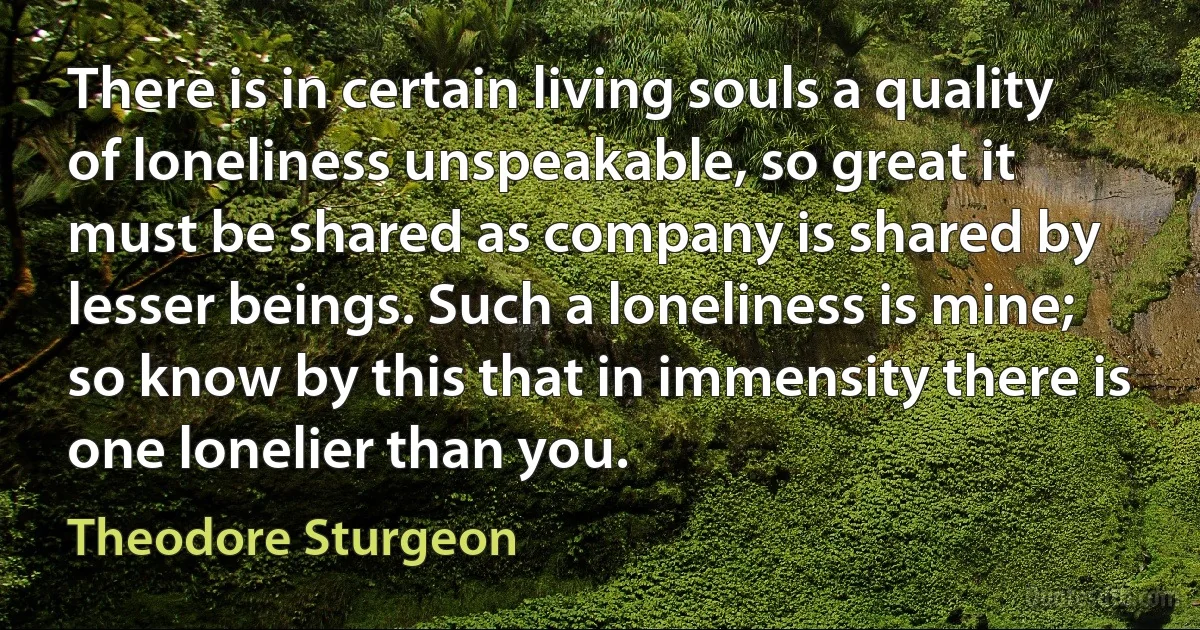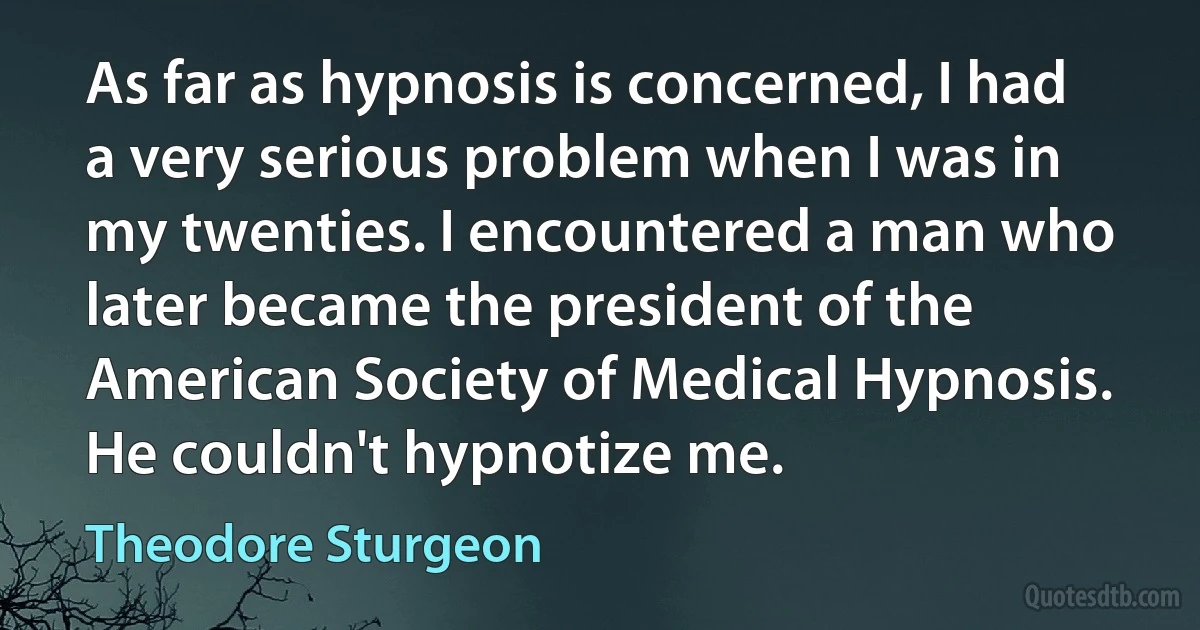Theodore Sturgeon quotes - page 2
And Charlie asked questions! His unease had long since disappeared, and two of his most deep-dyed characteristics took over: one, the result of his omnivorous, undisciplined, indefatigable reading and picking of brains; second, the great gaping holes this had left in his considerable body of knowledge. Both appeared far more drastic than he had heretofore known; he knew ever so much more than he knew he knew, and he had between five and seven times as much misinformation and ignorance than he had ever dreamed.

Theodore Sturgeon
There were a lot of people living in his time who never did latch on to the idea that the curve of technological progress was not a flat slanting line like a diving board, but a geometrical curve like a ski-jump. These wistful and mixed-up souls were always suffering from attacks of belated conservatism, clutching suddenly at this dying thing and that, trying to keep it or bring it back. It wasn't real conservatism at all, of course, but an unthought longing for the dear old days when one could predict what would be there tomorrow, if not next week. Unable to get the big picture, they welcomed the conveniences, the miniaturization of this and the speed of that, and then were angrily confused when their support of these things changed their world.

Theodore Sturgeon
Pleasure, the outer edge of ecstasy, was in the dour days of Protestantism, considered sinful in itself, wherever gained; Rome held specifically that any or all sexual pleasure was sinful. And for all this capped volcano produced in terms of bridges and houses, factories and bombs, it gouted from its riven sides a frightful harvest of neurosis. And even where a nation officially discarded the church, the same repressive techniques remained, the same preoccupation with doctrine, filtered through the same mesh of guilt. So sex and religion, the real meaning of human existence, ceased to be meaning and became means; the unbridgeable hostility between the final combatants was the proof of the identity of their aim-the total domination, for the ultimate satisfaction of the will to superiority, of all human minds.

Theodore Sturgeon
Father-dominated people who form father-dominated cultures have father-religions: a male deity, an authoritative scripture, a strong central government, an intolerance for inquiry and research, a repressive sexual attitude, a deep conservatism (for one does not change what Father built), a rigid demarcation, in dress and conduct, between the sexes, and a profound horror of homosexuality.
Mother-dominated people who form mother-dominated cultures have mother religions: a female deity served by priestesses, a liberal government-one which feeds the masses and succors the helpless-a great tolerance for experimental thought, a permissive attitude toward sex, a hazy boundary between the insignes of the sexes, and a dread of incest.

Theodore Sturgeon
Here, too, was the guide, the beacon, for such times as humanity might be in danger; here was the Guardian of Whom all humans knew - not an exterior force, nor an awesome Watcher in the sky, but a laughing thing with a human heart and a reverence for its human origins, smelling of sweat and new-turned earth rather than suffused with the pale odor of sanctity.

Theodore Sturgeon
Mankind has in it a crushing need to feel superior. This doesn't have to bother the very small minority who actually are superior, but it sure troubles the controlling majority who are not. If you can't be really good at anything, then the only way to be able to prove you are superior is to make someone else inferior. It is this rampaging need in humanity which has, since pre-history, driven a man to stand on the neck of his neighbor, a nation to enslave another, a race to tread on a race. But it is also what men have done to women.
Did they actually find them inferior to begin with, and learn from that to try to feel superior to other things outside-other races, religions, nationalities, occupations?
Or was it the other way around: did men make women inferior for the same reason they tried to dominate the outsider? Which is cause, which effect?

Theodore Sturgeon



